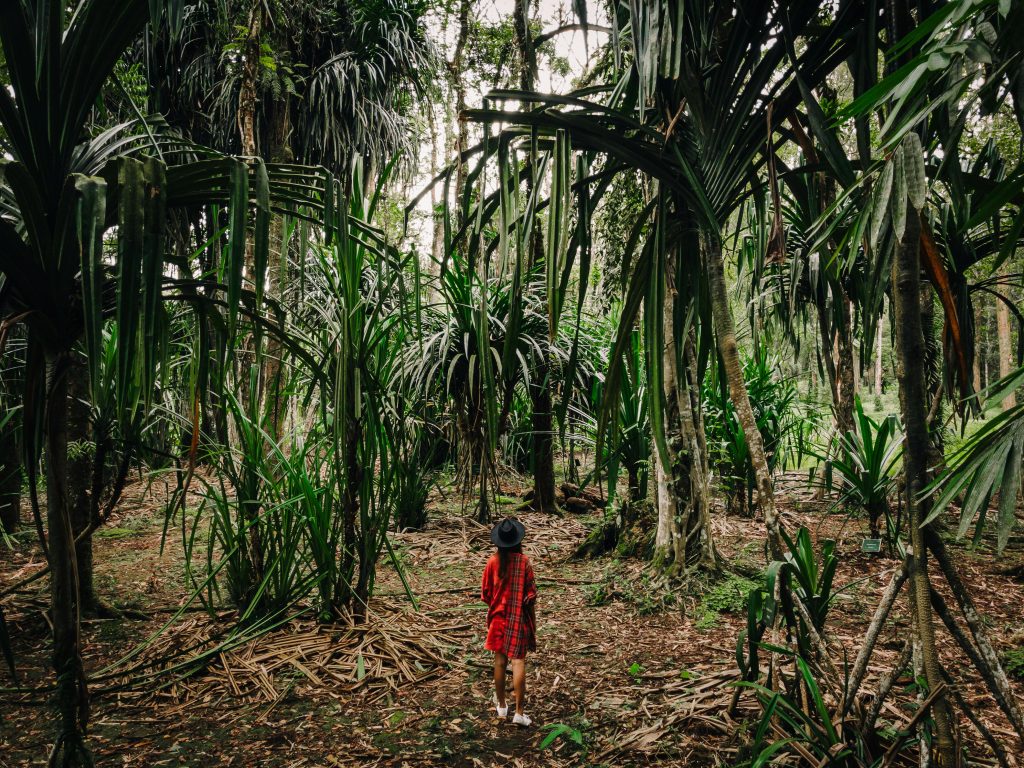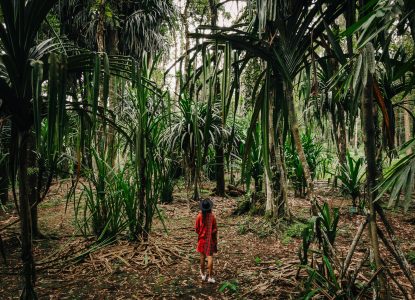By JoAnne Wadsworth, Communications Consultant, G20 Interfaith Forum.
— —
As part of Native American Heritage Month, the G20 Interfaith Forum and International Academy for Multicultural Cooperation hosted an illuminating webinar exploring the vital work of Indigenous women leaders. This November 14, 2024 discussion brought together three dynamic Indigenous women who shared their experiences in community building, cultural preservation, and intergenerational mentorship. The webinar featured moderator Deborah Sanchez (Chumash, O’odham, Raramuri), Board Member of Seventh Generation Fund for Indigenous Peoples; along with panelists Mima Salas (Diné, Xicana, Gabrieliño Kizh), Thriving Women Program Coordinator at Seventh Generation Fund; and Teresa McGinnis (Yurok), Chief of Staff at Seventh Generation Fund and founder of Mothers and Daughters Native Moon.
Deborah Sanchez
Deborah Sanchez shared her profound journey in Indigenous language revitalization, particularly her work with the Chumash Cultural Collective. She detailed how a transformative canoe journey in 2001, supported by the Seventh Generation Fund, sparked a cultural awakening that changed the trajectory of her people’s relationship with their traditional practices.
Her current focus on revitalizing the ancestral language, which had its last speaker pass in 1965, demonstrates the power of persistence in cultural reclamation. She highlighted the crucial role of twelve Indigenous Chumash women who form the core of the language revitalization effort, noting how language preservation interconnects with other cultural practices and environmental stewardship.
“To really understand the incredible sacrifice or effort that it takes to raise a language back or bring it back to the people, you have to put it in that backdrop [of historical suppression]. The world view is really embedded in the language.”
Mima Salas
Mima Salas, serving as the Thriving Women Program Coordinator, detailed the transformative work of the Eagle Feather Fellowship, which supports young Indigenous women ages 18-24. She described how the fellowship provides both virtual gathering spaces and practical support for community-based projects.

Her work has expanded to include supporting Indigenous artists globally through the Empowering Arts and Creativity grants program, which received overwhelming response and has supported 250 artists across the US, Canada, and Kenya. She emphasized the importance of intergenerational knowledge exchange and maintaining connections with traditional ways.
“When you’re going to learn about something, you go to the knowledge keepers first… you respect the pathway that they’ve set for you and honor the work that they’ve done because we wouldn’t be where we are now without them.”
Teresa McGinnis
Teresa McGinnis shared her powerful work as founder of Mothers and Daughters Native Moon, an initiative addressing period poverty in Indigenous communities. She described how her personal experiences as a young girl on the reservation inspired her to ensure future generations would have better access to resources and education about menstruation.
Her program has evolved from personal distribution of supplies to a comprehensive educational initiative that breaks down cultural taboos and promotes dignity around menstruation. She emphasized the importance of including men and boys in these conversations and creating intergenerational dialogue about women’s health.
“We want to end period poverty one pad at a time… We want them to celebrate their Moon time instead of being ashamed of it or looking at it as an ugly thing.”

Q&A Highlights:
- Discussion of challenges facing Indigenous women, particularly regarding climate crisis and gender-based violence
- Exploration of ways to build solidarity between Indigenous peoples and other displaced communities
- Examination of intergenerational knowledge transfer and its importance in cultural preservation
- Conversation about breaking down cultural taboos and building supportive community networks
Key Points:
- Intergenerational knowledge sharing is crucial for cultural preservation and community strength
- Indigenous women are leading innovative solutions to community challenges
- Cultural reclamation work spans multiple areas including language, health, and artistic expression
- Building supportive networks and breaking down taboos strengthens community resilience
- Recognition of ancestral wisdom while adapting to contemporary challenges
- The importance of creating safe spaces for learning and sharing across generations
— —
JoAnne Wadsworth is a Communications Consultant for the G20 Interfaith Forum Association and Editor of the Viewpoints Blog.


